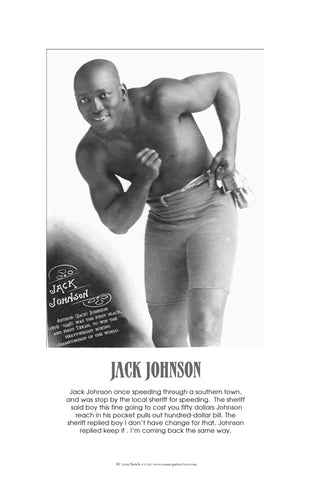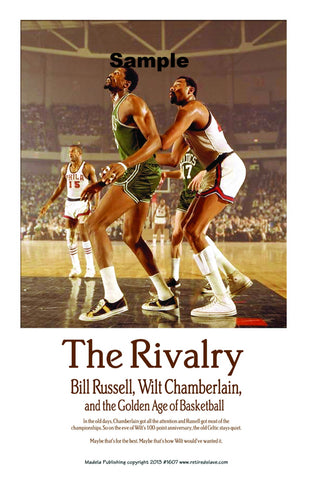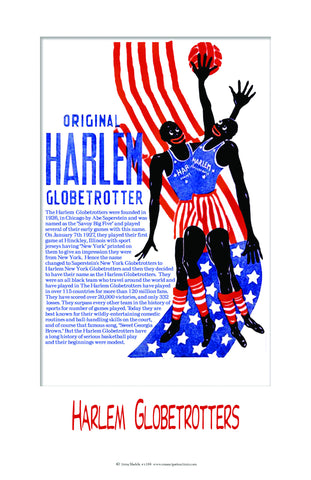Jack Johnson #1036
$ 8.00
Caption from poster__
" Unforgivable Blackness: "
The Rise and Fall of Jack Johnson
.
A word to the black man
Do not point your nose too high
Do not swell your chest too much
Do not boast too loudly
Do not be puffed up
Let not your ambition be inordinate
Or take a wrong direction
Remember you have done nothing at all
You are just the same member of
society you were last week
You are on no higher plane
Deserve no new consideration
And will get none
No man will think a bit higher of you
Because your complexion is the same
Of that of the victor at Reno
--Los Angeles times July 5, 1910
Arthur John (Jack) Johnson (1878 -1946) was the first black, and first
Texan, to win the heavyweight boxing championship of the world. Born
in Galveston on March 31, 1878, he was the second of six children of
Henry and Tiny Johnson. Henry was a former slave and his family was
poor. After leaving school in the fifth grade, Johnson worked odd jobs
around South Texas. He started boxing as a sparring partner and fought
in the "battles royal," matches in which young blacks entertained white
spectators who threw money to the winner. Johnson turned professional
in 1897 following a period with private clubs in Galveston. His family's
home was destroyed by the great hurricane of 1900. A year later he was
arrested and jailed because boxing was a criminal profession in Texas.
He soon left Galveston for good. Johnson first became the heavyweight
champion of Negro boxing. Jim Jeffries, the white champ at the time,
refused to fight Johnson because he was black. Then, in 1908, Johnson
knocked out Tommy Burns in Australia to become world champion, although
he was not officially given the title until 1910 when he finally fought and beat
Jeffries in Reno. Jeffries had come out of retirement to become the first of
many so-called "great white hopes." Race rioting was sparked after the
Johnson-Jeffries fight. The Texas Legislature banned films of his victories
over whites for fear of more riots. In 1913, Johnson fled because of trumped
up charges of violating the Mann Act's stipulations against transporting white
women across state lines for prostitution. During his exile from the U.S.,
Johnson lost his championship to a white man, Jess Willard, in Cuba in 1915.
He returned to the U.S. on July 20, 1920 and was arrested. Sentenced to
Leavenworth in Kansas, Johnson was appointed athletic director of the prison.
Upon his release, he returned to boxing, but only participated in exhibition
fights after 1928. Although married three times to whitewomen, Johnson never
had children. He died in a car crash June 10, 1946, nearRaleigh, North Carolina.




